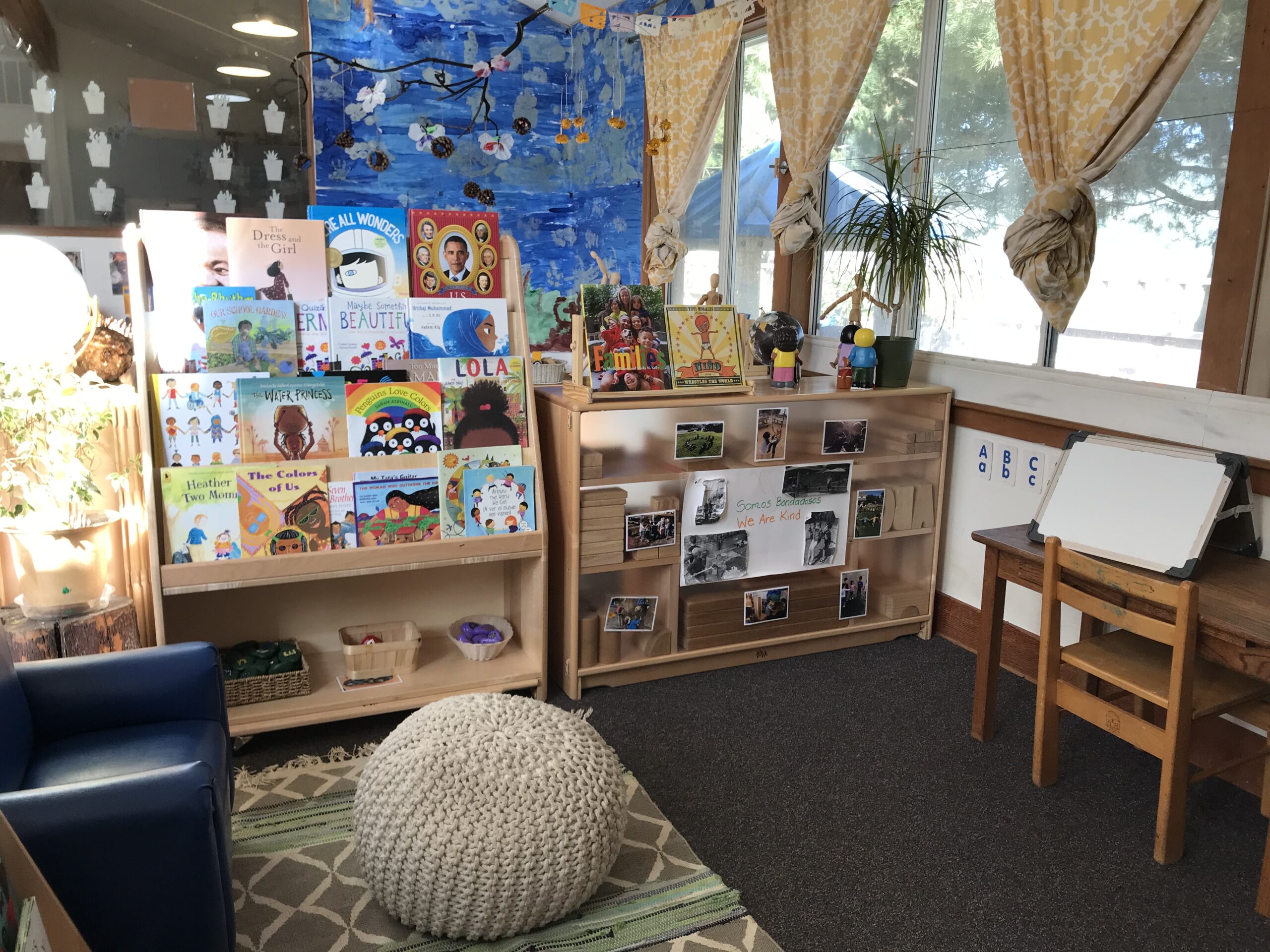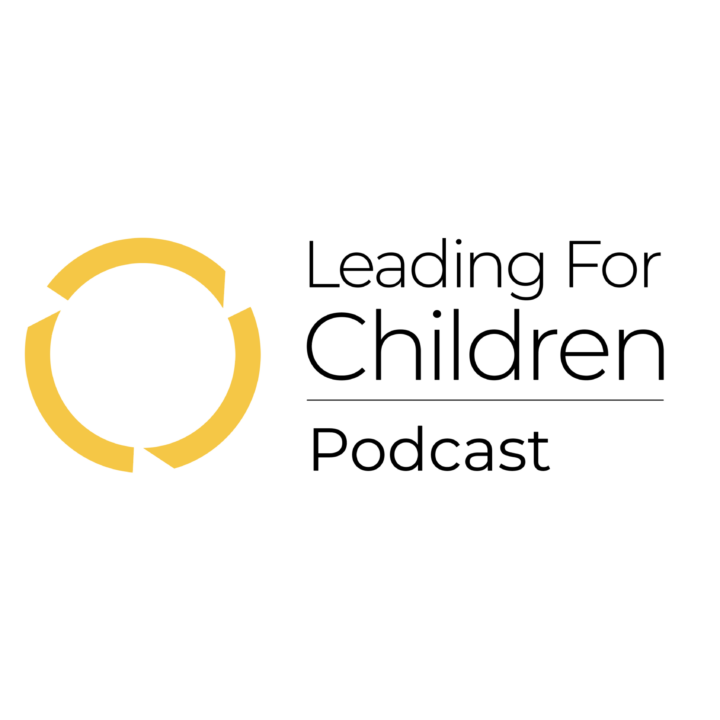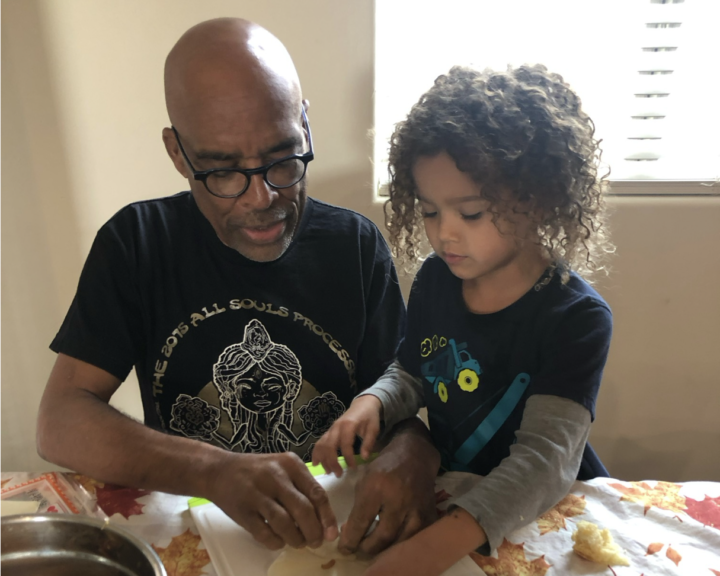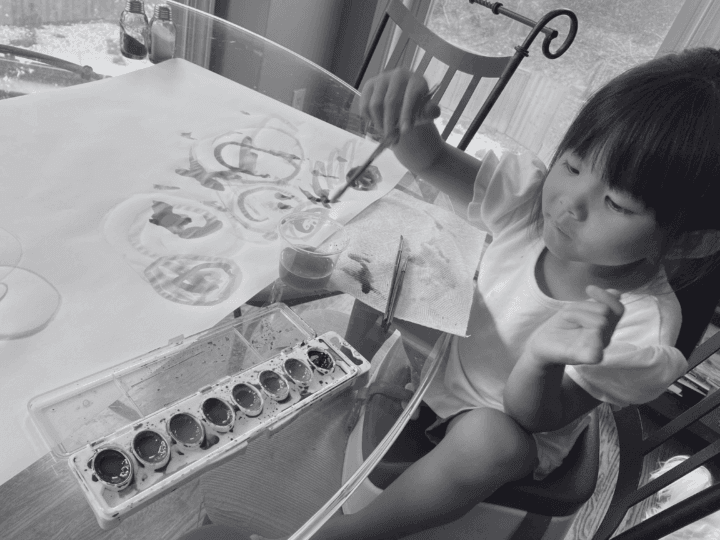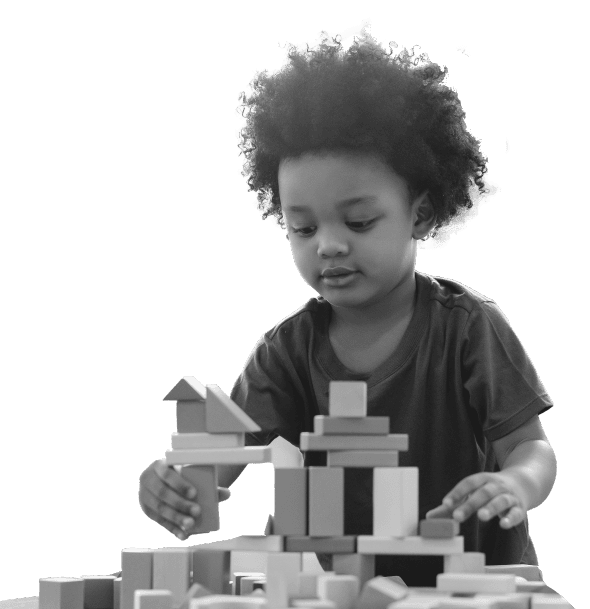This blog was written by Julia Connolly, a member of LFC’s team.
In our episode of The Leading for Children Podcast this month, we were joined by two wonderful guests, partners and co-parents of a ten-year-old boy, Beth Brett and Meghan Kelley. In their professional lives, Beth is an architect and project manager, and Meghan is a clinical psychologist. Together, we engaged in a dynamic conversation about what respectful emotional and physical environments can look and feel like, and how their cultivation helps create thriving communities for children. The rule of ‘respectful’ is the eighth in our book, 11 Simple Rules to Create Thriving Communities for Children.
Take a moment to think about the word “respectful.” What thoughts come to mind? During the past several weeks at LFC, as we’ve been exploring the simple rule, respectful, we’ve encouraged each other to be patient observers of our thoughts, emotions, and physical sensations. We invite you to do the same. Does the concept of respect and respectful evoke memories of a certain period in your life? A particular moment? Perhaps you’re reflecting on a time you felt respected or disrespected, or remembering how you learned about respect from others as you were growing up. How are these associations activating your curiosity about respect?
In this month’s podcast, Meghan, Beth, Judy and Nichole talked about respect. In this blog, we welcome you to join the conversation about this very complex and important concept — respectful. Let’s dig deeper into three ideas:
- What early learning about respect looks like and how our unique, individual understanding evolves over time
- How mutuality and reciprocity are essential for respectful relationships, interactions, and environments among adults and with children
- Ways we can consider shaping environments that are respectful for all of us
Early Learning About Respect
Each of us has our own understanding of respect. We first learn about it in childhood, and then as we mature and have more experiences, our understanding may shift. Meghan described her childhood understanding of respect as “concrete” and “specific.” Growing up, she received direct feedback from the adults around her about what was appropriate and what was not, what was good and right, and what was bad and wrong. There was little room for negotiation or collaboration. Reflecting back on her childhood, Judy related to Meghan’s perspective and described her parents’ behaviors as “laying down the law.” She said that in her home, respect was non-negotiable and absolute.
For our panelists, childhood memories and definitions of respect/respectful evoked feelings about power dynamics. Consider these phrases about respect: “Respect your superiors,” “Respect your elders,” “Respect is earned, not given.” When respect is spoken of this way, it is about power and control.
Nichole identified that there is a tendency in our world to conflate respect with obedience. She reflected on how this presented in her childhood:
“Growing up, I had such a skewed vision of what respectful meant. I started to question when the adults around me would say, ‘Be respectful.’ I often found that things that I was being asked to do in the name of respect were so opposite of who I was and what my values were as a young child.”
Beth agreed and shared that her inquisitive nature was often repressed, which led to feeling somatically “icky,” with an upset stomach, tension, and tingly nerves.
Meghan acknowledged that all of humanity is not homogenous, and that recognizing and holding space for that beautiful truth is essential. She says:
“It’s about really recognizing that we all come with different experiences, different personalities, different viewpoints, etc., and embracing that. Making sure there’s space for all of that is really important.”
True Respect Requires Reciprocity and Mutuality
In healthy relationships, respect is two-way. It is mutual and reciprocal. It is caring and must include curiosity. When authentic respect is present, all parties feel valued and actively practice valuing one another, which allows us to feel more connected and collaborative.
Our panelists concurred that for respect and respectful to to be truly authentic and satisfying, it has to be inclusive of more than just our own perspective. We are obliged to find ways to include the perspectives of others.
Knowing the impact of feeling shut down and discouraged from finding her individuality, Nichole talked about how she has moved forward with intention:
“That experience shaped how I am as a parent, because I’m so mindful of trying to make sure that my children have their own identities.”
Beth added:
“[A shift in my thinking came when] I actually had a child. Seeing his development, I’m wanting him to ask questions and encouraging them. It’s about having the dialogue where I may not have the answer, but let’s talk about it – showing him ‘I want to know what you’re thinking.’”
When being respectful is understood as following a clear-cut set of behaviors, it can be challenging to navigate diverse and evolving perspectives and spaces. As Meghan matured and developed greater self-awareness and awareness of others, she realized that in reality, respect isn’t so simple. She shared:
“It’s become more of an emotional response for me. Paying attention to how my nervous system feels when a person is interacting with me, or when I’m in this space, or when I’m getting this kind of feedback. And also paying attention to how someone else might be reacting to how I’m interacting with them.”
How Can We Create Respectful Environments for Ourselves and Children?
Cultivating respectful spaces is an active, adaptive practice of attunement. Here are some strategies that can support the work:
- Reflect on the ideas and patterns you hold about respect from your upbringing. Notice how they impact the way you demonstrate respect with children. There is always time to change practices once you’ve realized they aren’t working.
- Actively listen to understand what others need to feel respected.
- Demonstrate and honor individual choice. Having choice is empowering – support children as they learn they can make choices, and teach them to honor others’ choices.
- Cultivate shared power by acknowledging yours and others’ humanity. This could look like being forthcoming when you are wrong or make a mistake, or like offering appreciation for others when they do something you value.
- Embrace, not merely accept, others in their wholeness as individuals.
- Allow others to have their emotional experiences without trying to fix, rescue, minimize, or distract from them.
Authentic respect is a commitment to learning and growing with the world around us. That is what creates an optimistic future for our communities.
